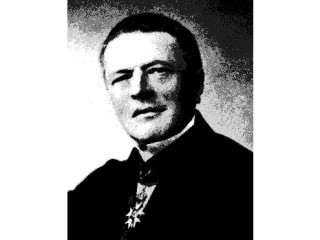
Antoine Augustin Cournot biography
Date of birth : 1801-08-28
Date of death : 1877-03-31
Birthplace : Gray, Haute-Saone, France
Nationality : French
Category : Science and Technology
Last modified : 2010-12-10
Credited as : mathematician, philosopher, and economist , Recherches sur les principes mathematiques de la theorie des richesses,
The French mathematician, philosopher, and economist Antoine Augustin Cournot was one of the founders of mathematical economics.
Antoine Augustin Cournot was born at Gray, Haute-Saone, on Aug. 28, 1801. In 1821 he entered a teachers' training college and in 1829 earned a doctoral degree in mathematics, with mechanics as his main thesis supplemented by astronomy. While studying at the college, he also served (1823-1833) as private secretary to Marshal de Gouvion Saint-Cyr. From 1834 he held successive positions as professor of analysis and mechanics on the science faculty of Lyons, rector of Grenoble Academy, chief examiner for undergraduate students, and, finally, rector of Dijon Academy (1854-1862). He died, nearly blind, in 1877.
Although Cournot was above all a mathematician and a member of the teaching profession, his numerous works show him also to have been a philosopher and economist. In the field of mathematics, in addition to his thesis on the movements of rigid bodies and celestial bodies, he devoted his efforts to two great problems: the theory of functions and the calculus of infinity (1841), and the theory of chance and probability (1843). These theories, above and beyond their mathematical significance, seemed to Cournot to hold an important place in man's general understanding of the world, but more specifically an understanding of the place of economics in man's life.
Cournot was a profound thinker: his advanced ideas on order and chance, enlightening both for science and mankind in general, are still prophetic. His economic concepts were broad in scope; his theories on monopolies and duopolies are still famous. In the field of economics he wrote few books or treatises. One book, however, has had an immense bearing on modern economic thought: Recherches sur les principes mathematiques de la theorie des richesses (Researches on the Mathematical Principles of the Theory of Wealth) was published in 1838 and reedited in 1938 with an introduction by Georges Lutfalla.
Unfortunately, this book met with no success during Cournot's lifetime because the application of the formulas and symbols of mathematics to economic analysis was considered audacious. In an attempt to improve the comprehensiveness of this work, Cournot rewrote it twice: In 1863 under the title Principes de la theorie des richesses, and in 1877 in Revue sommaire des doctrines economiques. These last two works are oversimplified and less informative versions of the original, since they were stripped of the mathematical language. Researches can, however, be thought of as the point of departure for modern economic analysis.
Having introduced the ideas of function and probability into economic analysis, Cournot derived the first formula for the rule of supply and demand as a function of price [D = f(p) ]. He made clear the fact that the practical uses of mathematics in economics do not necessarily involve strict numerical precision; economists must utilize the tools of mathematics only to establish probable limits and to express seemingly inaccessible facts in more absolute terms. Cournot's work is recognized today in the discipline called econometrics.
S. W. Floss, An Outline of the Philosophy of Antoine-Augustine Cournot (1941), is a detailed, comprehensive study of Cournot's philosophic writings. Jacob Oser, The Evolution of Economic Thought (1963), includes a discussion of Cournot's theories.
















